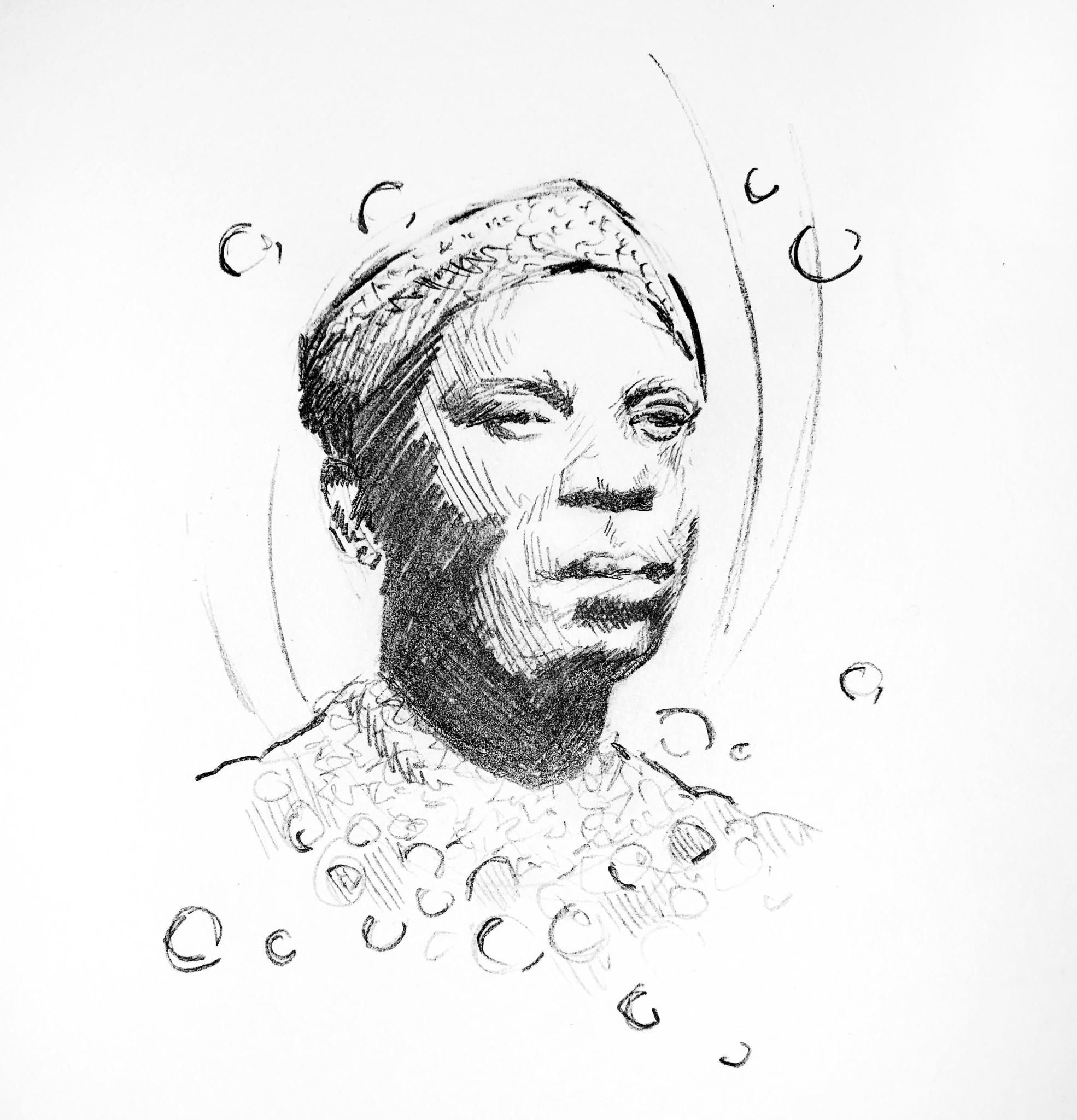At a celebration of Sun Ra’s 106th birthday, an audience member advised against calling it a “birthday” party. It’d be more accurate to celebrate his “arrival”—since, as Sun Ra told his followers, he had a vision that he wasn’t born on Earth, but was actually an angel from Saturn.
Nonetheless, dozens of people gathered in Pilsen’s Rootwork Gallery on May 22 to honor Sun Ra, the idiosyncratic afrofuturist who introduced an avant-garde cosmology to the freeform improvisation of 20th century jazz. Ra was born Herman Poole Blount in Alabama, but he started his career in Washington Park in the 1950s, where he studied science, technology, space travel, the occult, Egyptian myth, and the Bible with a secret group of Black intellectuals called Thmei Research. These studies informed the innovative jazz and vibrant costumes he would become known for. At the same time, Ra was assembling the musicians which would comprise his “Arkestra”—both an ensemble and an “ark” bridging his life on Earth and his origins on Saturn.
David Boykin, an avant-garde composer and jazz musician, hosted Rootwork’s celebration, which included poetry readings and musical performances. The founder of Sonic Healing Ministries, an organization “dedicated to the evolution of the human spirit through music,” Boykin has an unique appreciation for Sun Ra’s musicianship—and the fact that “his approach to music and art was just different from everything else.”
The evening began with poetry readings both written and inspired by Ra. Boykin read two of Ra’s poems himself—one about how Ra envisioned the structure of the heavens and another exploring the deeper functioning of sentence and language structure in Ra’s work. Afterwards, he called audience volunteers to participate. Steve, a student of Ra who said that once traveled with the band, volunteered. Dressed in Arkestra-inspired regalia, he picked two poems from a collection of Ra’s works that he brought to the event.
One of the featured performers, Lisa E. Harris, a classically trained soprano interested in the connection between sound and spiritual healing, also prepared a poetic tribute. She read her work “I am Strange” in a slow, deep, melodic voice, accompanying herself with soft whistles into the microphone. The poem showcased one of Ra’s most powerful motifs: love as a transcendent force.
The first musical act of the night was a solo performance by Boykin, who reinterpreted Sun Ra’s work with improvisation and repetition on a MPC sampler. The set ranged from airy woodwinds sounds and piano chords to breakbeats and quotes from Sun Ra, ending with his refrain: “In Chicago, I introduced space music.”
Next in the lineup was Davu Seru, a composer, improvisational percussionist, and professor of African American literature and English at Hamline University in Saint Paul. In his poem, Seru celebrated Ra’s optimism, encouraging the world to improve and invent. His musings concluded with a question: “what is love but creation?” Seru followed with an energetic solo drum set, using brushes, sticks, bells, and his body to create a sound that replicated Ra’s otherworldly spirit. He seamlessly switched from one sound to another, playful, but in full control of his sound. The lineup closed out with Boykin on soprano saxophone, Saru on percussion, and Harris’s vocals. Each brought an individual take on improvisational jazz, connecting to each other and to the legacy of Ra.
Tracie D. Hall, the founding curator of Rootwork, ended the night with some parting words. She emphasized the role Chicago played in Ra’s career, calling the city “the seed of [the] Black avant-garde.” She continued, “[The South Side] attracts a certain type of freedom, and that’s manifested here.”
In order to foster this spirit of freedom, Hall guided the audience through a moment of silence. About thirty seconds in, the stillness was broken by people celebrating in the street. The room laughed, and those gathered decided to take their cue and celebrate for themselves.
Veronica Karlin is a contributor to the Weekly. She’s an undergraduate at the University of Chicago, originally from Los Angeles. She last wrote for the Weekly in May about the new generation of cooperative farmers on the South Side.



